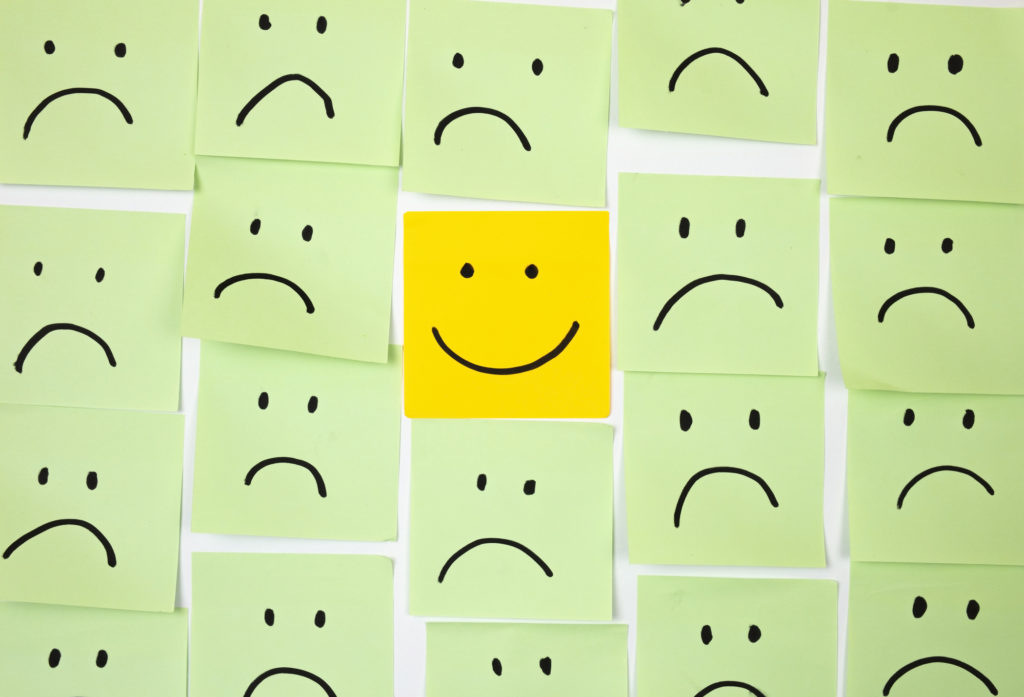International Day of Happiness is on the way, friends. The date, which was established by the United Nations General Assembly, falls on March 20 and focuses on the importance of a positive mindset.
Now, more than ever, it feels important to place a priority on our happiness. Sadly, that’s often easier said than done – as I’m sure many of us have felt before. The fact is that we’re never really taught how to be happy, and many of us struggle in this area. In fact, we often sabotage our own joy.
I chatted with Mary Hoang, author of Darkness is Golden and founder of The Indigo Project, to get some more insight.
Here’s what she shared:
Happiness is not a static goal
There’s a tendency for many of us to feel as though happiness is “the goal or the endpoint,” Hoang said over email. That, quite simply, sets us up for failure.
“As with any emotional experience, you can never reach a permanent state of happiness,” she said.
Hoang explained that our tendency to view happiness as conditional gets in the way of our ability to enjoy it. Every time we tell ourselves “you will finally be happy” when we achieve whatever goal, or conquer whatever challenge, we set an impossible expectation for ourselves.
Instead, what usually happens is you’ll feel happy for a while, “but then it’s likely a range of other emotions” will creep back in after a while, Hoang shared.

Your joy doesn’t lie in social expectations
One of the most common examples of conditional happiness we see lies in “social expectations, like get a good job, find a partner, have kids,” Hoang said. Many people assume that once those boxes have been ticked, they will feel satisfied.
That is problematic not only because it’s impossible to remain perpetually happy because of any one life achievement, but because it’s also robbing us of the “joy within our lives right now,” Hoang shared.
“Sure, our life might not be perfect and we might have some shit to work through (it’s called being human), but there is always space for joy, wherever we’re at on our journey.”
How do we ‘get happy’ then?
First, Hoang stressed, we need to understand that “happiness is just one emotion amidst the broad spectrum of emotions, and life is rich with many types of feeling experience.”
In short, she shared that feeling happy is pleasant and important, but it’s necessary that we “feel the tough stuff, too”.
But if you would like to improve your mindset, which remains incredibly important, Hoang recommended two things: mindfulness and gratitude.
These are effective because mindfulness asks that you stop and begin “paying attention to life, as it is in this moment”. Whether that’s focusing on your breath, taking in the view in front of you or savouring the taste of your coffee, this act helps you step out “from thinking about the future or dwelling about the past”. And gratitude is equally as powerful because it “helps rewire the brain to attend to the positive and fulfilling aspects of our lives,” Hoang said.
“It can be an invaluable practice to check in daily with the things you have to be grateful for, big or small.”
Ultimately, the lesson in mastering happiness is “finding the things in our lives that enrich us,” said Hoang. More often than not, it’s the simpler things (as cliche as that sounds). So, take the time to learn what brings you joy.
“And honestly, give yourself a break – we’re not meant to be happy all the time.”

Leave a Reply
You must be logged in to post a comment.